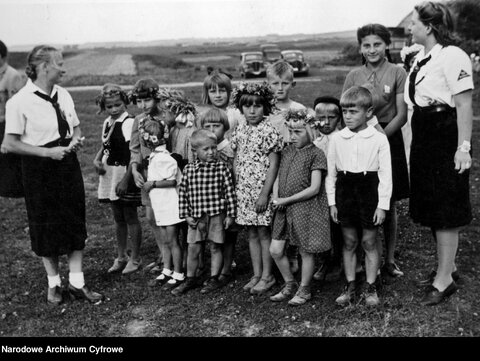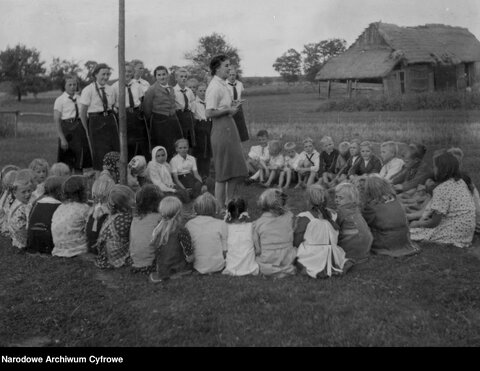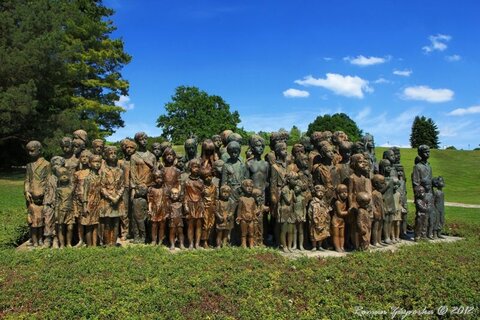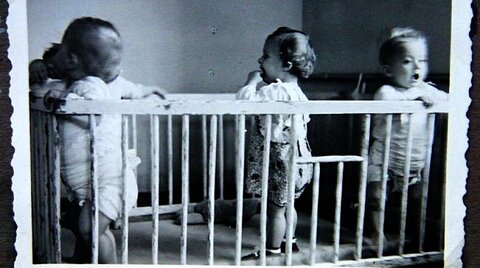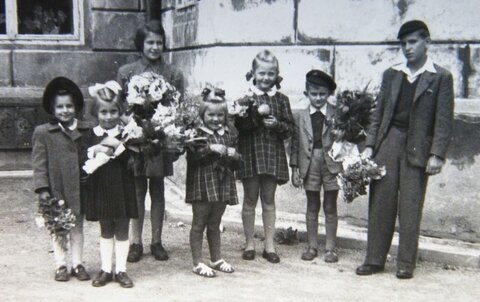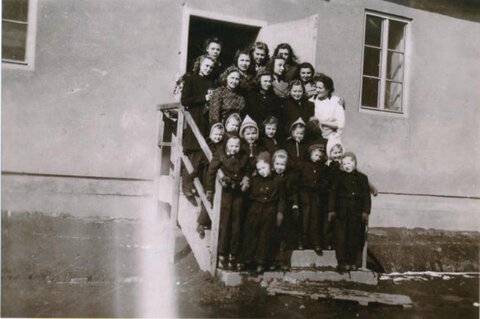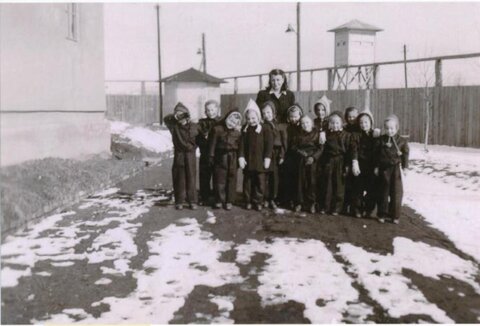- Girls from the Association of German Girls with a group of children. Some of the children are wearing flower garlands on their heads.
- An instructor from the Association of German Girls teaches German songs to rural Volksdeutsche children in the Radom area.
- The Children’s War Victims Monument by Jiří Hampl and Marie Uchytilová
- Children of Lidice
- Children of Lidice (Left to right: Veronika Hanfová Libuše Müllerová, behind: Věra Vokatá Jana Müllerová Hana Špotová Václav Zelenka Václav Hanf)
- Children of Svatobořice, 1944
- Children of Svatobořice with their teacher Ms. Marková, 1944
Learning Platform about stolen children during the Second World War and contemporary violations of children’s rights
Using these materials, you can introduce young people, either in school or in an out-of-school setting, to the history of stolen children during the Second World War and address the topic of contemporary violations of children’s rights.
Learn more about the history of the stolen children
- personal stories
- contributions by experts
- various formats: text, podcast
- from German, Polish, Czech and Ukrainian perspectives
Discover the learning materials
- adaptable
- ready for use straight away
- attractively designed
- created by experts in non-formal education
The forced Germanization of children “of good race” from occupied Poland, Ukraine and Belarus as well as several regions of Southeastern Europe was a central plank in National Socialist race and resettlement policy.
Isabel Heinemann, academic
The victims of forced Germanization were removed from their families either temporarily or for the rest of their lives. Some never found out the truth about their origins. They grew up and lived with an identity that was based on a lie. That was something that left a lifelong mark and also had an effect on the lives of their relatives.
Pavla Plachá, historian
We were taken to the orphanage in Puschkau. There we were only allowed to speak German. I was in the second year in school, and we knew a couple of words. The children who were in the first year didn’t know any German yet. But we kept quiet because they hit us if we spoke Czech. So we were careful.
Emílie Chválová (née Frejová), one of the children who survived the Lidice massacre
